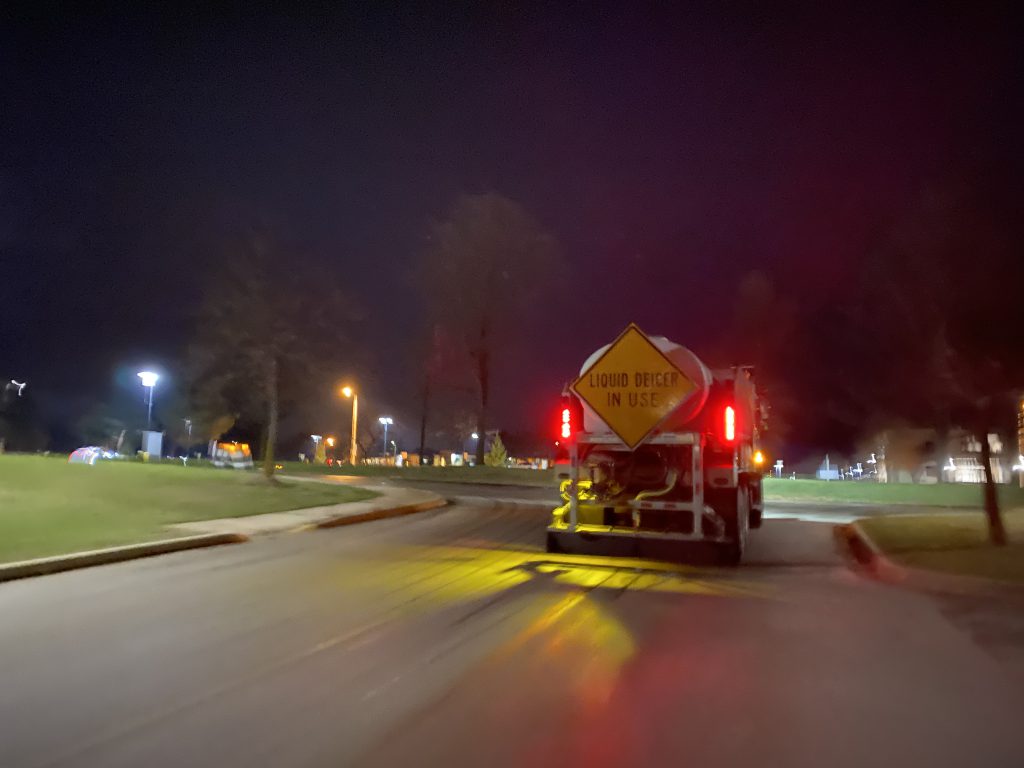In 2013/14, my wife and I became fearful of a phenomenon that might have led to a civilizational collapse, and so we started ‘prepping’.
‘Preppers’ or ‘Doomsday Preppers’ are essentially any people who take it into their own hands to prepare for the survival of their group or family in the face of a predicted life-threatening catastrophic event.
We were amateurs, but nonetheless, with prepper manuals in hand, we bought a tiny shack in the middle of nowhere and tried to grow food we could eat so that we wouldn’t have to rely on stores, aka civilisation. After a year our garden failed to become self-sustaining but the novel How to Survive Everything was born and we learned a lot about the Prepper lifestyle and philosophy along the way.
Here’s what we discovered.
1. Preppers are not who you think are – they are a multitude. “We are all Preppers Now” said the New York Times during the Covid-19 pandemic, while the BBC declared ‘Preppers are going mainstream’.
Since Covid 19 has been a 50% increase in the number of Canadians joining ‘Preppers & Survivalists of Canada’, while Australia has reported a ‘Doom Boom’ with hundreds of thousands fleeing cities in ‘Covid flight’ to live ‘off-grid’. In the UK there’s been city-flight to rural Scotland and a boom in people learning ‘survival bushcraft.’
Since Covid 19 Preppers have become a much larger group than the ‘Survivalists’ of old. Survivalism was historically associated with gun-toting, right wing American militias, whereas today’s Preppers include ecologists, left-leaning ‘home schooling’ families, zero growthers, homesteaders, and everyday’ self-sufficiency’ couples, growing their own organic or macrobiotic food to become less dependent upon corporate food supply chains. Some preppers turn holiday homes into safe houses, while others create fortified city homes. Some invent scientific systems to give themselves self-sustaining cycles of crops and fish, while others hoard year’s worth of food and medical supplies in hidden bunkers.
The new preppers include billionaires building apartment sized apocalypse bunkers with swimming pools and city-dwelling ‘fitness and self-defence preppers’ who are learning martial arts. Prepper websites list from seven to eighteen different varieties of Preppers, including hoarders, suburban preppers, weekend bug-out preppers and minimalist bug-in preppers – along with your regular old-school conspiracy theorist and religious apocalypse preppers who are still out there.
They all share a common belief, that in an extreme emergency, you can’t trust the government, so you’d better make your own plans.
2. It’s not only Preppers who are preparing for the end of civilization – your government is too!
Our time prepping started with a big and terrifying download of Government data.
It all started back in 2013 when my wife and I were commissioned to write the script for the TV feature ‘American Blackout’ for National Geographic. The show was made to launch the second season of the popular TV series ‘Doomsday Preppers’ and to introduce a wider audience to a wide variety of ‘Preppers’ who were preparing for a range of disasters in advance (Sea Level Rise, Meteor Strike, Civil War, Super Volcano Eruption, Pandemic, Economic Collapse, Nuclear War).
Fusing documentary footage of past disasters with dramatized sections featuring everyday people, our 90-minute docu-drama, revealed ‘in gritty detail the impact of what happens when a cyber attack on the United States takes down the power grid.’ (It has gone on to become one of the top ten films in the ‘prepper cannon’.)
What amazed and terrified my wife and I, when making American Blackout, was the specialist research that National Geographic passed to us from FEMA, the CDC, the NSA, Professors of National Security Strategy and the Department of Public Health at Columbia University – and other ‘Collapse Studies’ departments.
B – there are an alarming number of Govt. funded ‘Centres for Disaster Research and Planning’ in US universities.
These studies demonstrated ‘tipping points’ that had occurred during previous disasters such as Hurricane Katrina, Hurricane Sandy and two blackouts in different parts of the US. They showed how ‘positive feedback loops’ escalate into multi-faceted crisis situations.
For example: one feedback loop is caused by people lighting fires to stay warm during a power outage. This then causes an increase in buildings going up in flames which increases call-outs for emergency services. In turn this leads to looters and criminals starting fires so as to distract the police, and so an increase in fire and looting leads to hospitals and police being overrun. Shut-down hospitals lead to escalating panic, more looting and more fires.
A positive feedback loop is the opposite of a negative one and a good example of a negative one is a thermostat – it turns the heat off. A positive one, turns it up.
These govt. and university studies also had modelled timelines for the collapse of civilization, from Day 1 to Day 30, and pinpointed the exact moment at which the military has to take over and enforce martial law. These were case studies from nations around the world
It was all very convincing and damn scary.
It’s not just ‘preppers’ who are paranoid, your government is also planning for all worst-case disaster scenarios, and calculating the degree to which you, and all other average members of the public could become a problem within its crisis-management plan.
You don’t want to be trapped in a positive feedback loop, you want to be outside the loop completely.
3. You will always miss one thing on your prep list.
‘How to Survive…’ Prepper manuals are obsessed with lists. Most preppers are preparing to cut themselves off from civilisation for a long period of time – ‘getting out of dodge’ when the ‘SHTF’ (Shit Hits The Fan), bugging-out into the wilds or hiding in an underground bunker to sit out a crisis.
Prep lists include essential foodstuffs you will need to hoard or grow in case the ‘just-in-time’ consumer food supply chain breaks down and lists of medical supplies you will need if the health system collapses. After all, before the discovery of antibiotics in 1928, the number one cause of death in the world was simple bacterial infection and the average life expectancy at birth was only 47 years.
You’re going to want antibiotics on your list. A lot of them.
Every single thing you and your loved ones will need for a long stay away from civilisation has to be on that prep list, in advance, and your stash needs to be complete before the collapse begins. When the unprepared population become desperate, contaminated, hungry and lawless, there is no possibility of ‘nipping out to the shops’ for say milk powder or tampons, a phone charger or something else you forgot to put on your list.
The dangers of being caught outdoors were demonstrated by the Martial Law rules during Hurricane Katrina, under which any person caught within ‘evacuated areas’ was rounded-up at gun-point and arrested as a looter – even if they were holding onto their own possessions in their own homes.
Preppers we interviewed and who had done ‘crisis rehearsals’ told us they’d overlooked three main things from their prep lists:
Books and magazines. In most situations where our access to ‘the media and the internet’ is shut down, we have to do something with ourselves in the moments when we’re not hiding, farming, or patrolling the perimeter fence with a cross-bow. This is where reading comes in. It’s at the peak of Maslow’s Hierarchy of Needs, but it gets pretty essential when a group of media-addicted people get stuck together in lockdown with no TV and internet. People need space from each other in tightly packed environments and reading let’s them do that.
Also, if civilisation is collapsing for good, and you’re the only survivors, you may wish you’d stocked up a good library of classics like Plato, Shakespeare, Goethe, Thomas Paine, Virginia Woolf and Harry Potter to build your new civilisation upon.
A guitar or musical instrument. In a bunker or hideaway home it’s a really good idea for social bonding, to have some time together that is not just ‘survival talk’. It’s also important to keep your own traditions alive and your spirits up. So sharing songs and even learning and instrument is a way to pass culture on and to help bond and motivate the group. Group sing-alongs to Bowie and Abba classics are also a really good way of preventing ‘bunker madness’.
Birth control. Perhaps because it embarrassing to talk about in groups, or because sex tends to be seen as a luxury in the survival hierarchy, a surprising number of preppers forget to pack birth control. This is a real problem – as was proven nine months after the Covid lockdowns with the emergence of a whole generation of ‘Lockdown babies’. People forced into enclosed spaces, facing boredom and a lot of time ‘stuck together’ tend to become intimate; people facing fear of death also seem to have a primeval switch that clicks-on in their brains that says ‘death and fear is everywhere, quick, make more babies!’
A secondary problem with forgetting birth control during a prep is then failure to prep for what a baby will need on its arrival in a sustained lockdown or bunker hold-out. So the two tons of formula milk and diapers required are not on the list, and again, you can’t pop back out to Duane Reader for these if there’s been a nuclear war or airborne Lyssavirus (Rabies) pandemic
4. Beware of ‘apocalypse swapping’.
One of the strangest things about Prepping is that it can give you a feeling of being really special. You hold secret knowledge that the un-enlightened masses don’t. You know that the world is going to collapse for X, Y or Z reason and this makes you one of the few smart ones who will survive. This means you get to look down at everyday people – and call them ‘The Sheeple’ or ‘the normies’. When the SHTF, the sheeple are all going to starve or become infected, and you can shout ‘We told you so – but you wouldn’t listen!’ along the depopulated streets.
Such a mindset, with its sense of moral superiority and its secret conspiracy ethos can be highly addictive, and it has parallels with religious cult mindset. Even atheist preppers are in this way like ‘the chosen’ or ‘the elect of God’. There is a good deal of fantastical vanity involved in thinking of oneselves as ‘the only survivors’ and a fair amount of apocalyptic revenge-fantasy in this too.
This ‘looking forward to the end of the world’ mindset, can lead to a strange Prepper behaviour that I call ‘apocalypse swapping’. In apocalypse swapping, a prepper who believed say in Nuclear War, shifts their believed in apocalypse to an entirely different one – say Meteor Strike, after their belief in impending Nuclear War collapses. Normally a person who believed in impending Nuclear War would cease to believe in the end of the world, after their fear of such a war diminished, however the apocalypse addict simply moves to another apocalypse so they can keep their prepper behaviors and belief in the end of the civilisation intact.
One prepper I know has, over twenty years, moved from a passionate belief in imminent nuclear apocalypse, to imminent asteroid strike, to imminent ‘Artificial Intelligence takeover’. It doesn’t matter to her if the reason for stocking up her cellar or practicing karate have changed completely. She seems only to be contented when she has an apocalypse to believe in. She has in the past become depressed and demotivated during her brief transitions from apocalypse type to the next. She needs the end of the world to give herself a sense of identity, purpose and self-esteem. In this sense, whichever apocalypse she believes in doesn’t really matter, what does matter is the discipline and focus of the prepping life. A daily routine of ‘being ready to face the end.’ She is, I should add, one of the happiest and most energetic people I’ve ever met.
5. You can spot a Prepper because they buy…
During Covid 19 when people became hoarders and panic-buyers, the must-have pandemic panic-purchase was toilet roll. Tens of thousands stuffed their cars and homes with it, they pulled each others hair in supermarkets over it.
Real preppers don’t fight over toilet roll, they have their own stashes already or they have other more sophisticated sanitary arrangements.
In autumn of 2022, in a Europe with 200% increase in fuel prices and facing fuel crises and blackouts, the next hoarding panic-object is firewood. We’re already seeing people hoarding and fighting over it. We are hearing that in France, the inhabitants are felling forests and gathering fallen wood from parks.
Preppers won’t be fighting over firewood. Most preppers aim to be ‘energy self-sufficient’. What you will see a rush on with preppers is something quite unexpected.
Preppers buy chickens.
Since Covid 19, the American Poultry Association reported an ‘exploding… resurgence in raising backyard poultry.’ Fear of scarce eggs and further lockdown has led many to start prepping for food self-sufficiency. The New York Times even reported ‘People are panic-buying chickens like they did toilet paper.’
Chickens however are a long-term investment. If someone has a batch of chickens you can bet they have a whole crop rotation survival system they’re not telling you about.
Which takes us to my final point.
6. Preppers are secretive, and have to be.
Prepping is a bit like ‘Fight Club’ – you know, ‘The first Rule of Fight Club is you don’t talk about Fight Club, the second rule is that you don’t talk about Fight Club.’
Every Prepper and Survivalist manual tells you that secrecy is tantamount. The reason is very simple: in any situation where the food supply chain breaks down, people in your vicinity will begin to starve and they will look to their neighbour’s homes for food once they’ve exhausted their own. And when law and order breaks down, and when all the stores have been looted and thousands are starving, then the last thing you need is for these people to know that you have a three-year stash of beans, pulses and canned meat in your not-so secret sub-basement.
The manuals warn you that formerly friendly neighbours can become desperate when food and safe fresh water runs out – after all people start dying of dehydration after three days without water. Preppers are trained to say no to neighbours and outsiders, and to scare them away. ‘Pity can be your weakest link’ the manuals warn. ‘Just say no.’ Saying ‘No’, may involve razor wire, a baseball bat, or worse.
Just to prove how secretive Preppers are, a few years ago, when my wife and I were making our pantry stash of canned goods, we were talking to a family member on the phone on the other side of the world, and due to a couple of little tell-tale signs – in this case the purchase of chickens! My wife and I worked out that our relatives had started prepping too. It turns out they were prepping for a different catastrophe than we were. We were getting ready for the end of oil (Peak Oil) and they were studiously preparing for a global economic catastrophe. It also turns out that they were way more advanced than we were, and much more like the bunker-digging, supply-hoarding, high-security, hard-core apocalypse preppers in my novel How To Survive Everything.
‘Your secret is safe with us,’ we said.
***













/cloudfront-us-east-1.images.arcpublishing.com/gray/YG4GF6N5ZFDZ7CXRZNTKTQS54I.bmp)
